Friday Feb 20, 2026
Friday Feb 20, 2026
Thursday, 8 December 2022 02:57 - - {{hitsCtrl.values.hits}}

President Ranil Wickremesinghe
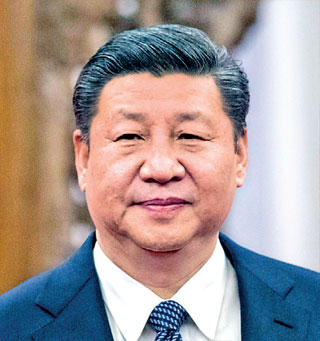
Chinese President Xi Jinping
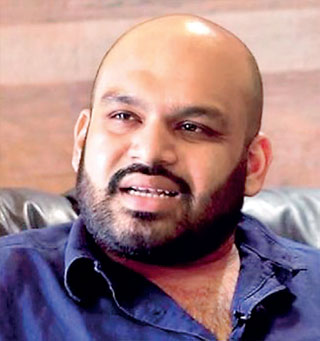
TNA MP Shanakiyan Rasamanikkam
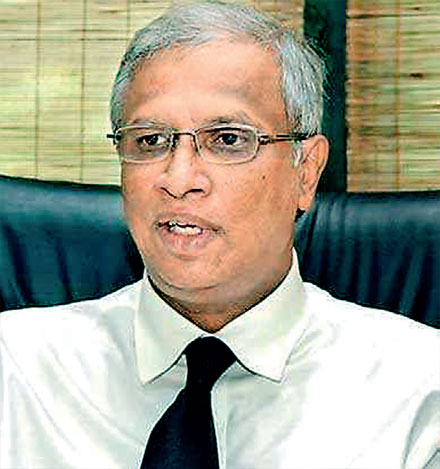
TNA MP M.A. Sumanthiran
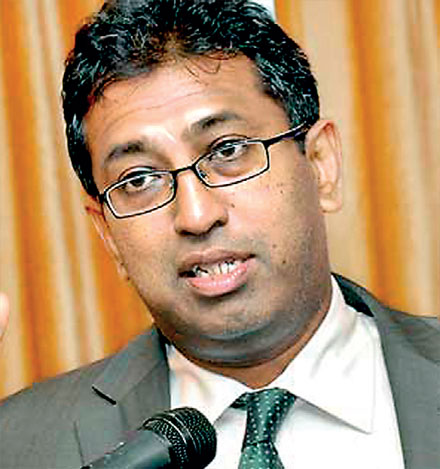
SJB MP Dr. Harsha de Silva
|
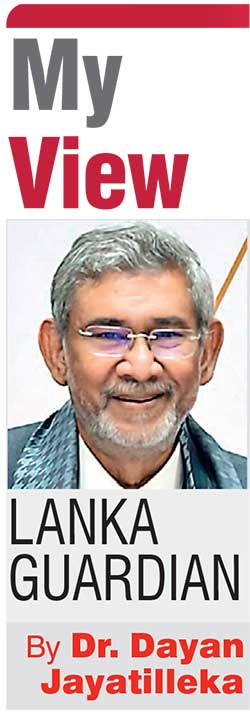 Lakshman Kadirgamar used to tell a joke about a political leader (probably apocryphal) who proudly proclaimed: “Ladies and gentlemen, our country has arrived at the very edge of the precipice! But do not fear! Under my leadership, the government is determined to press on and undertake a Great Leap Forward!”
Lakshman Kadirgamar used to tell a joke about a political leader (probably apocryphal) who proudly proclaimed: “Ladies and gentlemen, our country has arrived at the very edge of the precipice! But do not fear! Under my leadership, the government is determined to press on and undertake a Great Leap Forward!”
So it was with President Gotabaya Rajapaksa and his great leap forward overnight into organic agriculture.
So it is with President Ranil Wickremesinghe. No mandate. No reform. Leap to 2050:
“What is the plan for reform? Frankly, I have no plan for reform…I thought it’s not worth reforming it. So I personally have no plans for reform and the government will not have plans for reforms. We want to build a new economy an economy that will face 2050…Are we ready to go to 2050 or do you want to go back to 1950? These are the two options that are available for us…” (presidentsoffice.gov.lk)
Personally, I’d have thought that going back to 1950—if that were possible, which it isn’t—when we were admired by the stellar youngsters who would become Singapore’s leadership team, would be a splendid thing, because we could then go forward while avoiding or rectifying the mistakes we made, but obviously President Wickremesinghe thinks his ideas are a better option.
Ranil Wickremesinghe has forgotten that Sri Lanka got itself rapidly out of terrible economic situations on two occasions—1977 and 1989—and on both occasions the nation was guided by an economic philosophy which despite the differences of the two variants 1977 and 1989 and the rivalry of the two architects, were quintessentially the same or at least compatible at their core.
What is the shared economic philosophy that was the foundation for rapid recovery in 1977 and 1989? I have written extensively on the Premadasa paradigm and shall not do so today. Instead, let’s turn to the exposition by Ronnie de Mel, First Class Honours in History and the finance minister who architected the Open Economy revolution of 1977. His views may come as a surprise to Sri Lanka’s current crop of liberal economists in civil society and the Opposition.
Here, Minister Ronnie de Mel speaks on ‘Sri Lanka’s Economic Strategy’ while addressing the Conference ‘The New Sri Lanka: Opportunities for Business’, organised by The Financial Times, London, on 4 September 1980 at the BMICH:
“…To put it in a nutshell, we believe in quick economic development and growth to solve our pressing problems of employment, while maintaining social welfare and social justice—the physical quality of life of our people—and curbing inflation as far as possible…
We certainly place more reliance on the market rather than on state control to do this. This does not arise however, from blind faith in capitalism or in the Invisible Hand of Adam Smith that was supposed to guide economies to some optimum situation. Far from it. Adam Smith is as dead as the dodo. I am not an admirer of capitalism…We cannot create a second Singapore or second South Korea here…
“…There are many countries in the world today, under feudal and totalitarian regimes, where the opulence of the few is in stark contrast to the squalor of the many. In the predominantly Buddhist tradition of Sri Lanka, we have chosen a different path. We have strived to attain economic growth with social justice, and thereby establish a stable society…”
(‘Sri Lanka’s Economic Strategy’, Publicity Unit of the Ministry of Finance and Planning).
President Wickremesinghe rejects the foundational philosophy of the two conspicuous success stories, Ronnie de Mel and Ranasinghe Premadasa, and hopes to replace it with his savage neoliberal policy experiment which when undertaken in other parts of the world has been rejected and replaced due to its explosively polarising results. Things usually cool down in December, with public holidays and bonuses. Not this December. What 2023 is likely to be under Ranil’s rule is presaged by the spate of daily peasant demonstrations in the most diverse rural locations.
Rasamanikkam’s raucous Sinophobia
Isn’t it a terrible moment when you realise that your favourite among the new cricketers will remain entertainingly aggressive but will never be in the Aravinda de Silva class? That’s what I felt while watching Shanakiyan Rasamanikkam’s parliamentary speech in the course of which he threatened to lead a China Go Home campaign from Batticaloa if Beijing did not agree to restructure Sri Lanka’s debt.
While that was crassly stupid, what was uglier was the moment that he snapped back at fellow Oppositionist Dr. Harsha de Silva who attempted to intervene helpfully to deflect a colossal blunder. Still uglier and even more significant was the intervention against Harsha de Silva and in support of Rasamanikkam’s rant by M.A. Sumanthiran who obviously doesn’t believe, as Harsha correctly does, that “friends don’t let friends drive drunk”.
There is a significant gulf between dignity and self-respect on the one hand and persistent, misplaced arrogance on the other. The Tamil nationalist political mainstream should be reminded of the virtues of pragmatism and a measure of modesty every time its representatives look around parliament at Government and Opposition benches. When the Tamil nationalist project was at its most spectacularly powerful, boasting a formidable leadership and militia with heavy artillery, a navy, a fledgling air-force and a huge volume of support from the global Tamil networks, it was eviscerated and annihilated in three years by two men who are the TNA’s parliamentary colleagues: Mahinda Rajapaksa and Sarath Fonseka.
The threat to commence and lead a China Go Home campaign shows a poor grasp of reality. The only kind of campaigns that shift China’s policy are by the Chinese themselves and that is not going to be forthcoming in respect of Sri Lanka’s debt. China does not blink in the face of campaigns by outsiders. A China that doesn’t blink in the face of the USA is hardly likely to do so in the face of a campaign by the TNA’s articulate Batticaloa representative.
Mangala’s mess: China went home
The biggest hole in Rasamanikkam’s threatened slogan of ‘China Go Home’ is that (to borrow a Blairism) we’ve been there, done that, got the T-shirt and won’t go back there again. One of main causes of Sri Lanka’s economic crisis is that the Yahapalanaya government of 2015, or more accurately its UNP wing in charge of the Finance and Foreign ministries, totally messed-up our economic relationship with China. They stopped the Chinese projects including the Port City on specious grounds of environmental violations and corruption. The high growth rate of post-war Sri Lanka was powered by Chinese funds, and rightly so because it had surplus funds as Japan did in the 1970s and 1980s.
The UNP under Ranil Wickremesinghe and Mangala Samaraweera pulled the plug in 2015 and China went home. Samaraweera who as Foreign Minister had alienated the Sri Lankan public by his co-sponsorship of the Geneva 2015 ‘foreign judges’ resolution, addressed a media briefing at the SL embassy in Beijing and said that China’s business practices will have to be investigated for corruption. The contrast with Lakshman Kadirgamar couldn’t be more striking.
In the face of such infantilism in foreign relations, China watched and waited. The economy began to slow down to a screeching halt. Unemployment mounted as did unpaid bills, because the stoppage of the Chinese projects went against international contracts. With an economy in tailspin Sri Lanka had no money to repay the loans or pay the bills.
Dr. Indrajit Coomaraswamy told me on board the USS Blue Ridge, the flagship of the US 7th fleet, in March 2016, that the only option was China, that he had convinced Prime Minister Wickremesinghe of that fact, and would be on a delegation to Beijing.
By July 2016, the Yahapalanaya UNP had taken the advice of Cabinet Minister Dr. Sarath Amunugama and kowtowed before a reluctant Beijing, offering it a much longer lease and a much larger extent of land than President Mahinda Rajapaksa had given it in Hambantota. China was back. Now, in the midst of a worse economic crisis the TNA’s Batticaloa MP is toying with a campaign which he would lead himself, calling on China to go home. Again.
|
Secrets behind Sinophobia screen
Rasamanikkam’s allegation of China’s preponderant culpability in Sri Lanka’s debt crisis and the deadlock in its resolution has not been shared by a single credentialed Sri Lankan or international economist.
The targeting of China exculpates the real culprits, namely the Sri Lankan administrations since the second Mahinda Rajapaksa term and inclusive of the Yahapalanaya government (mainly the UNP of Prime Minister Wickremesinghe), which borrowed excessively and unconscionably, and spent with profligacy on projects which were not in the national and social interest.
Quite a few parliamentary representatives of Tamil nationalism, TNA and non-TNA, have collectively let the cat out of the bag. Here are the cat’s stripes:
1) Tamil nationalism hates China because China helped Sri Lanka defeat Prabhakaran the LTTE and the war for Tamil Eelam.
2) Tamil nationalism thinks that Sri Lanka is now on its knees economically, which makes it the best time to de-link Sri Lanka from China while pressing for federalisation and the abolition of the executive presidency—all three of which will weaken the Sri Lankan state.
3) Tamil nationalism is dangling before the effete Sri Lankan comprador capitalist class and its organic leader President Ranil Wickremesinghe, the so-called solution of federalism, economic foreignisation and dependence on Tamil Diaspora finance capital in land ownership and hitherto state-owned national assets, as a ‘rescue roadmap’ for Sri Lanka.
Those who push this line will find that as in the years of war, the majority of the Sri Lankan people will prefer to trust –and balance between—their Asian friends, mainly India and China.
The TNA MP for Batticaloa should simply research the fulsome tributes by Sri Lankan political parties and leaders across the spectrum on the occasions of the 70th anniversary of the founding of the People’s Republic of China centenary of the founding of the Communist Party of China, and the 20th Congress of the Communist Party of China.
The delegation of the Communist Party of China was special guest at the Convention of the UNP under President Premadasa and General-Secretary Sirisena Cooray. When President Premadasa rolled out the free schools uniforms program the textiles were a gift from China.
No Sri Lankan political party is going to antagonise the world’s other superpower, the only peer rival of the USA and the second biggest economy in the world (arguably the first by some metrics).
Rasamanikkam will find himself politically very much alone in his Sinophobic campaign, apart from the company of Sumanthiran of course.
If anyone wishes to have China on board a preferred solution, the manner and method to be adopted is diplomacy at the highest level; diplomacy between true friends. Nothing else has the remotest chance of working. Anyone who advocates, threatens or plans an adversarial approach is far more interested in driving a wedge between Sri Lanka and a powerful, consistent friend and partner, rather than in serving the national or public interest.
Provincial devolution, not federalism
The TNA may now think as it used to, that it can play the role of kingmaker and assist President Ranil Wickremesinghe to be actually elected to office in 2024. It is much more likely to sink him yet again. The support of Tamil nationalism can be electoral kryptonite. It would resuscitate the majoritarian ethno-religious populism that lies dormant and latent, post-Aragalaya, in Oppositional politics. There are Brexiteer Boris Johnsons and Nigel Farrages aplenty on both sides of the House.
There is nothing that Ranil can promise the TNA that he can deliver without capsizing the regime and perhaps the ship of state too. Only a leader with a popular mandate or one who is likely to secure a popular mandate without being seen to be a captive of minority parties, can deliver durable reforms on the ethnic/ethno-regional front. That simply isn’t Ranil Wickremesinghe as recent (un)popularity polls reveal—over 50% distrust him on the economy—and his politico-electoral track record of almost a quarter-century reconfirms.
The safest bet for the TNA is to work with an electorally viable southern Populist—be it a progressive centrist like Sajith, a left populist like Anura Kumara, or a progressive populist like Dullas. Such a Southern populist democrat can actually deliver enlightened, sustainable ethno-regional autonomy based upon the 13th Amendment.
The cry of the Tamil nationalist democrats that federalism be introduced and defended among the Sinhalese by the southern mainstream parties is utterly unrealistic, and not exclusively or primarily because the Southern democrats are in the thrall of Sinhala chauvinism. From Spain to the Philippines, from Syria to Indonesia, from Turkey to Vietnam, there are states which are allergic to the federal form of state, which for reasons of history and political culture is deemed centrifugal. So also, Sri Lanka. A far more feasible a solution—and please note that I say ‘solution’ rather than ‘slogan’—is one which does not place the F-word, federalism, on the agenda: devolution of power/regional autonomy within a unitary state.
If this is seen as a cop-out by Tamil nationalism and the Southern liberals—be they neoliberals or left-liberals—they should be reminded that the Irish Republicans, the Sinn Fein, did not place either a republic (instead of the monarchy), or even a federal system (in place of the unitary state), on the agenda while negotiating the Good Friday accords. The underlying argumentation of the supremacy of Westminster embedded in the recent rigorous judgement by the UK Supreme Court against the holding of a second Scottish Referendum gives the lie to the argument of those Lankan liberals that the UK is only nominally a unitary state.
So too does the entire process mounted by the Spanish political and judicial system and its endorsement by Europe, rejecting the argumentation by Catalonia, uphold the unitary character of the state.
From the sad fates of the Kurds of Syria, Turkey and Iraq through to that of the Tigreans, proves that a robust regional autonomy brings immeasurably better results than a risky push for a liberal federalism which is closer confederalism given its ethnic content and borders (unlike federalism in the USA and Australia).
Though I am even sharper a critic of President Wickremesinghe than I was of President Jayewardene in the 1980s, I would not like to see the present incumbent overthrown by a combination of military and political ultra-nationalists, including in the ruling Pohottuwa, on the credible grounds that the military did not fight and win a war making enormous sacrifices only to watch an unelected president with a zero mandate violate the Constitution by attempting to remove the unitary character of the state and smuggle in federalism.
At this current moment, it would be de-stabilising to consider or even propose anything other than implementing the existing 13th Amendment, making it fully functional.